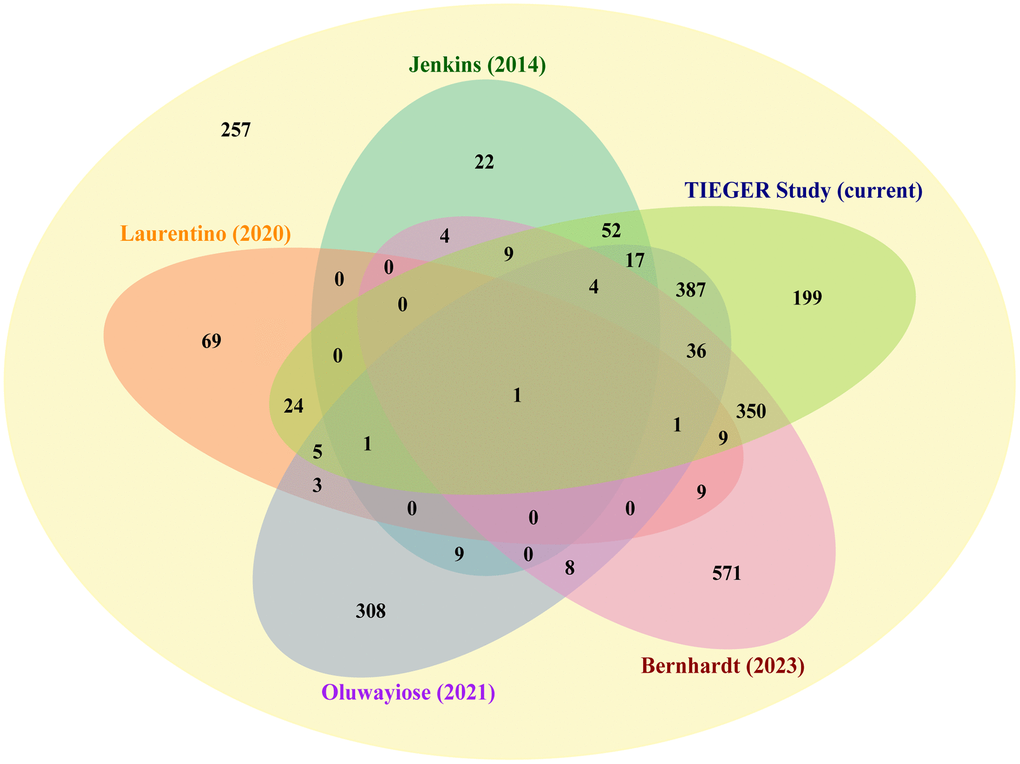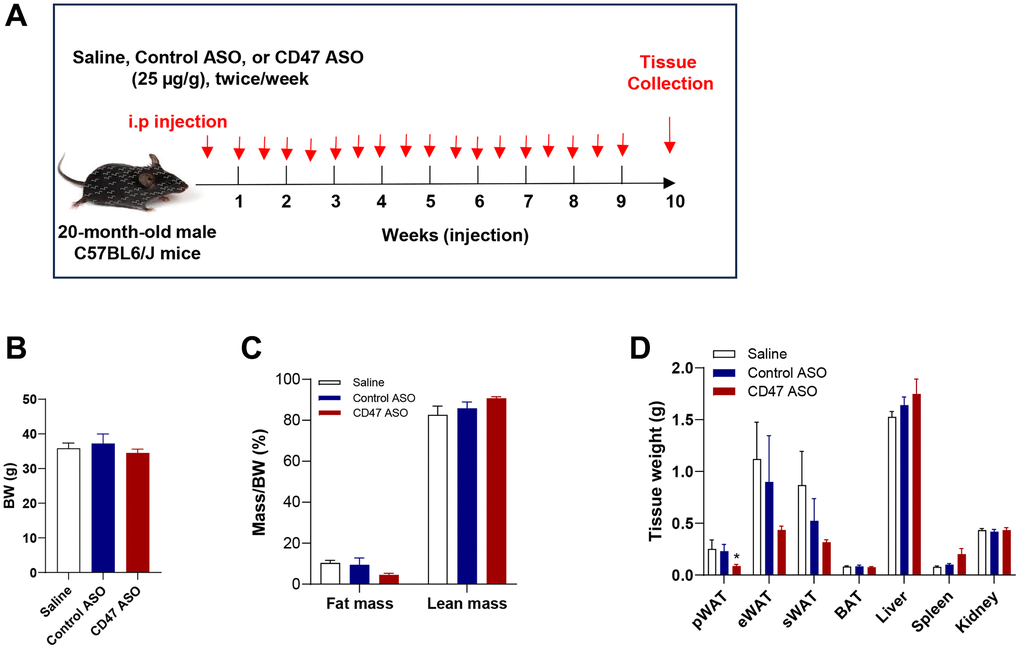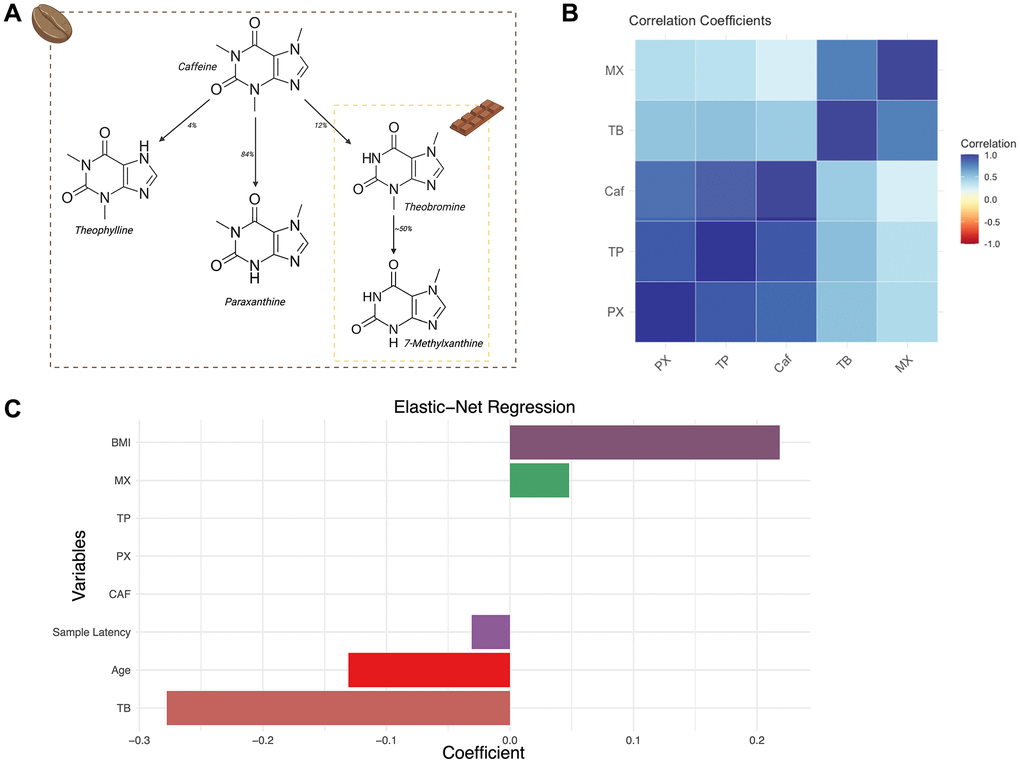Aging-US News & Blogs

-
EDITORS’ CHOICE: Age-specific DNA methylation alterations in sperm at imprint control regions may contribute to the risk of autism spectrum disorder in offspring

The results of studies revealed in this paper indicate that advanced paternal age increases the risk of autism spectrum disorder (ASD) in children, potentially due to sperm epigenetic changes.
-
A Common Aging Pattern: Changes in RNA Splicing and Processing Across Human Tissues
As we age, every tissue in the body undergoes gradual molecular changes. A long-standing question in aging research is whether these changes follow common patterns across tissues or whether each tissue ages on its own. … continue reading
-
Using Machine Learning to Identify Senescence-Inducing Drugs for Resistant Cancers
Treating aggressive cancers that do not respond to standard therapies remains one of the most significant challenges in oncology. Among these are basal-like breast cancers (BLBC), which lack hormone receptors and HER2 amplification. This makes them unsuitable for many existing targeted treatments. As a result, therapeutic options are limited, and patient outcomes are often poor. … continue reading
-
EDITORS’ CHOICE: SAMP-Score: a morphology-based machine learning classification method for screening pro-senescence compounds in p16 positive cancer cells
The paper featured on the cover of this issue of Aging-US, published on October 30, 2025, entitled “SAMP-Score: a morphology-based machine learning classification method for screening pro-senescence compounds in p16-positive cancer cells,” represents an important methodological and conceptual advance at the interface of senescence biology, imaging and drug discovery. … continue reading
-
Longevity Clinics: Balancing Innovation with Regulation
Interest in healthier, longer lives is rising, supported by recent scientific advances in aging research. But turning those discoveries into everyday healthcare solutions remains a work in progress. In this landscape, longevity clinics have attracted attention as personalized alternatives to traditional medicine … continue reading
Aging-US: Volume 17, Issue 12
-
A combination of differential expression and network connectivity analyses identifies a common set of RNA splicing and processing genes altered with age across human tissues
Although transcriptomic changes are known to occur with age, the extent to which these are conserved across tissues is unclear. Previous studies have identified little conservation in age-modulated genes in different tissues. Here, we sought to identify common transcriptional changes with age in humans (aged 20 to 70) across tissues using differential network analysis, assuming…
Insights From Authors & Announcements
ABOUT Dr. Mikhail (Misha) Blagosklonny:
It is with great sadness and heavy heart that we announce the recent passing of Dr. Mikhail (Misha) V. Blagosklonny, our beloved Editor-in-Chief. Misha succumbed to metastatic lung cancer after a courageous battle.
Dr. Blagosklonny will be remembered as a brilliant and extraordinary scientist who dedicated his life to science. He was a visionary thinker, who made highly original contributions to cancer and aging research that were often ahead of their time.
Dr. Blagosklonny was born into a family of scientists. His mother, Professor of Medicine Yanina V. Blagosklonnaya, specialized in endocrinology and was a talented teacher, mentoring several generations of medical students. His father, Professor Vladimir M. Dilman, was a brilliant gerontologist, endocrinologist and oncologist, known for being a very charismatic person. He was the first person to encourage Misha to think about nature, aging, and philosophy.
Misha was a theorist by nature. While in school, he was deeply interested in physics and dreamed of becoming a theoretical physicist. Eventually, he chose biology, driven to study aging and age-related diseases, including cancer. He started as an experimentalist, but over the years, he became a theoretical biologist. In a way, his dream came true.
In Remembrance | @Blagosklonny
ABOUT AGING-US.ORG
Aging-US.org features weekly blog posts describing new and trending research papers published by Aging-US.
ABOUT AGING-US
Aging-US is dedicated to advancing our understanding of the biological mechanisms that drive aging and the development of age-related diseases. Our mission is to serve as a platform for high-quality research that uncovers the cellular, molecular, and systemic processes underlying aging, and translates these insights into strategies to extend healthspan and delay the onset of chronic disease.
We aim to promote: 1) The treatment of age-related diseases through interventions that target the aging process itself, 2) the validation of anti-aging therapies by demonstrating their impact on functional decline and disease onset, and 3) the development of preventative strategies that delay or mitigate age-associated pathologies by modulating key aging mechanisms.
Impact Journals, the publisher of Aging-US, meets the standards of the Wellcome Trust Publisher Requirements and was included in the Wellcome Trust List of Compliant Publishers. Read about our rigorous Scientific Integrity Process.
To learn more, please visit Aging-US.com and connect with us:
Facebook | X | LinkedIn | YouTube | Instagram | Bluesky | ResearchGate | Pinterest | SoundCloud









